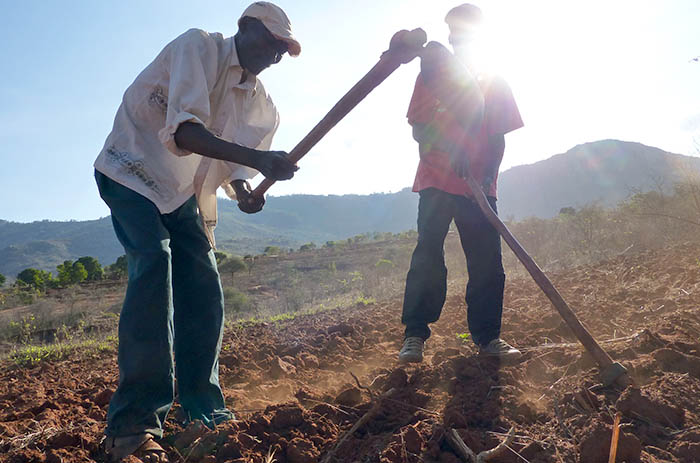
It is that time of the year when climate change brings the world together. On September 23rd, world leaders will gather in New York, and in December the annual United Nations Framework Convention on Climate Change will take place in Lima, Peru.
In both summits, policy makers, political leaders, the business community, NGOs and civil society will meet to discuss challenges, opportunities and best ways to cope with climate change.
The New York summit is convened by UN Secretary General Ban Ki-moon, aimed at catalyzing and galvanizing climate actions and decisions.
Of the sectors that are experiencing the adverse effects of climate change, agriculture is doubly affected due to its sensitivity to various climate aspects.
In the past few years, millions of small scale farmers with limited resources available to adapt have felt the heat in different parts of the world.Within East Africa alone, there have been severe droughts in The, erratic weather patterns and outbreaks of crop diseases in Kenya, and floods in Tanzania, just to mention a few.

A farmer tills his land so as to plant drought resistant crops. Photo: Elijah Mumo
This year has not been an exemption in Kenya, as far as these adverse events are concerned. A severe shortage of rain hit Kenya between the months of March and June. During this period, farmers normally expect rain so they can plant maize and a variety of other crops.
Further worsening the situation, maize lethal necrosis has in recent years struck crops in normally high-yielding regions. The disease causes maize plants to wilt and die during their flowering stage.
According to Alliance for Green Revolution in Africa (AGRA), small scale farmers produce about half of food for the Sub-Sahara region. Small holders who own 2 hectares of land or less are the least likely to be resilient to these shocks.
The alliance published the “2014 African Agriculture Status Report” on September 3, in which it argues that these small holder farmers run the risk of experiencing the effects of climate change in severe ways, particularly because about 90% of them rely almost entirely on rain fed agriculture.
The report underscores the importance of addressing climate change to increase African agricultural productivity, improve food security and enhance the resilience of farmers to climate change. The report could not have come at a better time. With the unfolding climate trends, the need for innovative agricultural practices to adapt to the changing climate has never been more urgent.



